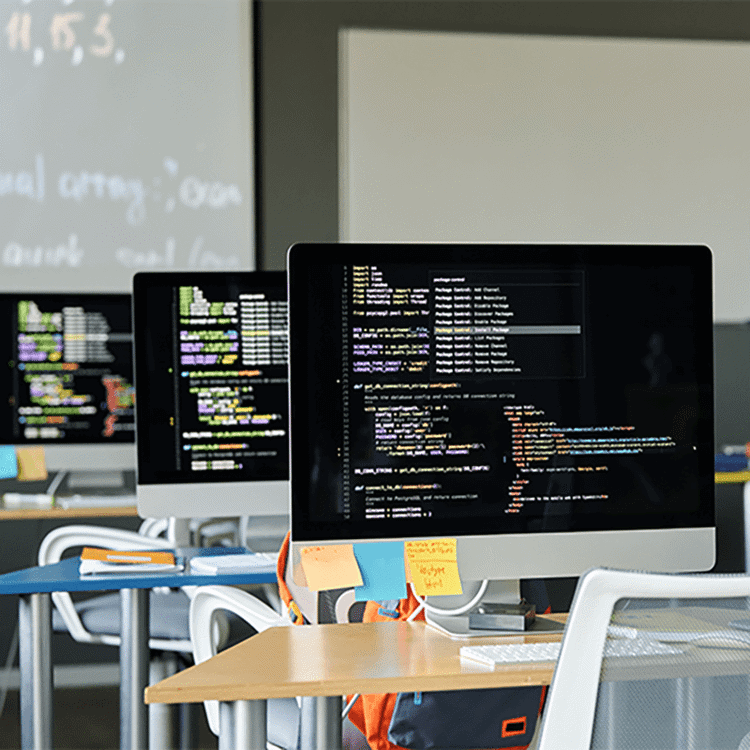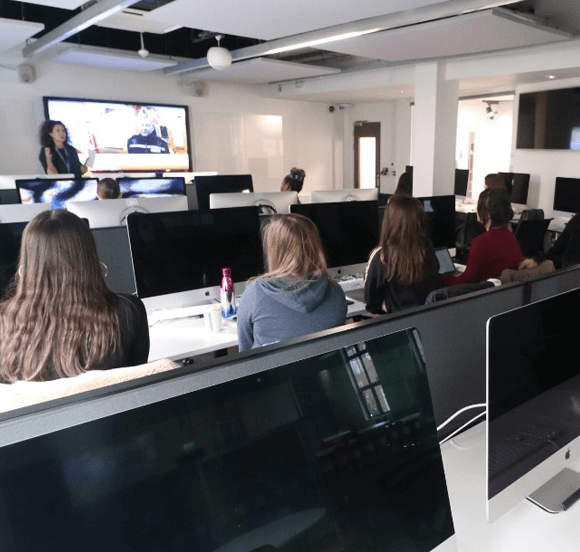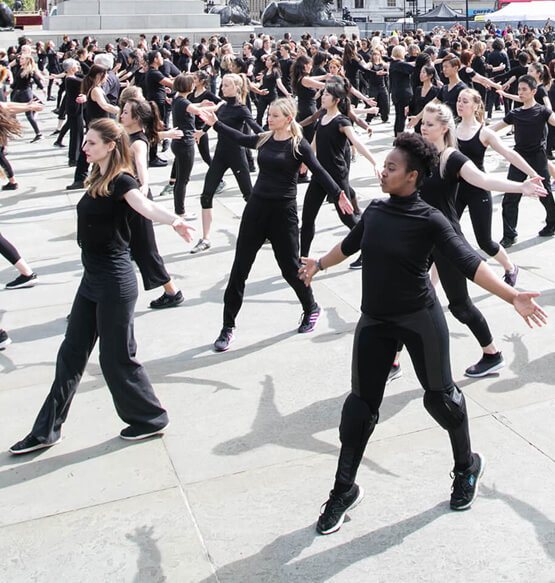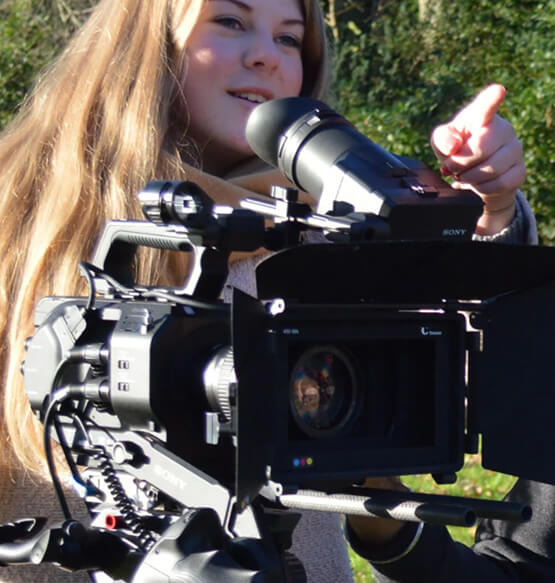Duration:
September start: 1 year (full-time), 2 years (part-time)
January start: 17 months (full-time), 2 years (part-time)
Please add an additional year if undertaking the Professional Experience Year: integrated 2-year masters (not available for April intake)
Number of credits:
MSc: 180
PGDip: 120
PGCert: 60
Start date(s):
September 2025
January 2026
September 2026
Get career ready with a MSc Computing Degree. This conversion programme requires no previous academic experience in the field of computing.
Did you know?
You'll spend your time studying in our state-of-the-art computer labs in our media centre.
This course is available as an extended masters for international students
Modules
This course offers you the chance to undertake one optional placement module upon completion of the core programme. You may undertake a year-long (CMP020P300) or a three month (CMP020P055) industrial placement.
The Placement module is taken by students in year two once they have completed the core programme of the course. Students beginning in January will have the option to undertake their placement during the Summer term when there is no teaching activity.
Placement modules recognise the importance of professional experience for pursuing bespoke careers and so provide MSc students with the opportunity to apply learned concepts and toolkits into practice of their fields of specialism.
You will learn on-the-job, highlight improvements in an organisation’s practices and contribute to chosen business projects. The placement can either be full-time or part-time to a minimum of 3 working days (21-24 hours).
The placement will be ideally tailored to your interests and aspiration but will ultimately meet the needs of employers. Roles may vary, but the emphasis should be on securing a placement within promising growth areas of your discipline. You should seek employment that will apply and develop existing and new skills within the workplace.
Placement Preparation Workshops will introduce you to the soft skills, the pitch and research skills needed to recruit and systematically prepare for a bespoke placement in a leading business organisation.
Professional Experience Year
This course also offers the option of a Professional Experience Year. This programme combines dynamic career modules with flexible placement opportunities. After completing your first year of study, you'll then complete a full year of Professional Experience training as part of your degree. This will give you real career experience. This unique opportunity offers you distinct paths to build your expertise. If your chosen degree offers a full-time professional placement, you can opt for that pathway. Alternatively, you can complete our Professional Experience Year and still build the professional skills you need for your future.

Skills
It all starts here.
The course focuses on core computing skills such as:
- software development,
- databases and
- cyber security
- programming
- data solutions
- secure systems.
You will become familiar with cyber security, exploring the lifecycles, legal frameworks and tools of the computer science professional, including legal, social and ethical concerns of computer security such as hacking and its ethical standpoint.
You will learn about developing software and working with data and build your fluency in Python, and also be provided with the opportunity to become a Certified Ethical Hacker (EH) through the EC-Council.
Our MSc Computing Degree is a conversion programme that requires no previous academic experience in the field of computing, making it the ideal course if you want to change career or develop a new set of skills to complement your existing experience and move a wider range of exciting roles in computing and IT.
Learning
Learning that's shaped around you.
Your teaching time at the University takes the form of:
- labs
- workshops
- tutorials
- weekly prep videos
- use of industry-standard IT resources
You will have the option to complete an industrial placement on this course which can be undertaken as a 3-month module during the Summer Term (May – September) or as a year-long module upon the completion of your MSc Project.

Assessment
Put what you learn into practice, building up a professional portfolio of work ready for the job market.
You’ll be set authentic assessments, meaning that your projects, tasks and exercises will replicate the working world of computing, ensuring that you are fully prepared for life after graduation.
Careers
A strong foundation for an exciting career.
When you graduate you could move into a wide range of careers, including entry roles in the IT industry, from government and public sector to large IT organisations or even the media.
Roles could include:
- programmer
- web developer
- software developer
- data scientist

Open days
Get a real taste of our campus, community and what it’s like to study at Roehampton
Applying
UK postgraduate students apply through our direct application system.
Specific entry requirements
Degree qualification 2:2 or above. Degrees in non-computing fields are welcomed.
You will need access to a computer throughout the course.
General entry requirements
September 2025 entry tuition fees (UK)
| Level of study | Full-time | Part-time* |
| MSc | £11,250 Professional Experience Year: £2,500 |
£5,625 |
| PGDip | £7,500 | £3,750 |
| PGCert | £3,750 | N/A |
*Year 1 fee
We offer a wide range of scholarships and bursaries. See our financial support pages for UK students.
We also provide other ways to support the cost of living, including free buses and on-campus car parking, hardship support and some of the most affordable student accommodation and catering in London. Find out more about how we can support you.
International postgraduate students apply through our direct application system.
Specific entry requirements
Degree qualification 2:2 or above. Degrees in non-computing fields are welcomed.
You will need access to a computer throughout the course.
General entry requirements
September 2025 entry tuition fees (international)
| Level of study | Full-time | Part-time* |
| MSc | £18,250 Professional Experience Year: £2,500 |
£9,125 |
| PGDip | £12,170 | £6,085 |
| PGCert | £6,085 | N/A |
*Year 1 fee
We offer a wide range of scholarships and bursaries. See our financial support pages for international students.
We also provide other ways to support the cost of living, including free buses and on-campus car parking, hardship support and some of the most affordable student accommodation and catering in London. Find out more about how we can support you.






